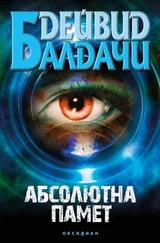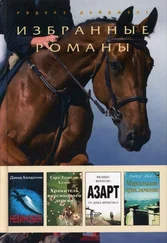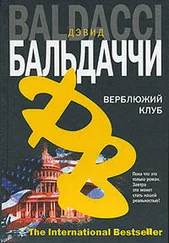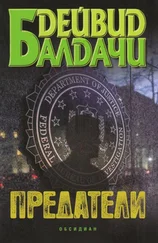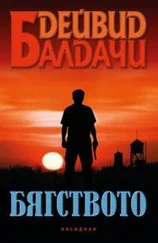Дэвид Балдаччи - Wish You Well
Здесь есть возможность читать онлайн «Дэвид Балдаччи - Wish You Well» весь текст электронной книги совершенно бесплатно (целиком полную версию без сокращений). В некоторых случаях можно слушать аудио, скачать через торрент в формате fb2 и присутствует краткое содержание. Год выпуска: 2000, ISBN: 2000, Издательство: Oxmoor House, Жанр: Триллер, на английском языке. Описание произведения, (предисловие) а так же отзывы посетителей доступны на портале библиотеки ЛибКат.
- Название:Wish You Well
- Автор:
- Издательство:Oxmoor House
- Жанр:
- Год:2000
- ISBN:9780446527163
- Рейтинг книги:4 / 5. Голосов: 1
-
Избранное:Добавить в избранное
- Отзывы:
-
Ваша оценка:
Wish You Well: краткое содержание, описание и аннотация
Предлагаем к чтению аннотацию, описание, краткое содержание или предисловие (зависит от того, что написал сам автор книги «Wish You Well»). Если вы не нашли необходимую информацию о книге — напишите в комментариях, мы постараемся отыскать её.
Suddenly Lou finds herself coming of age in a new landscape, making her first true friend, and experiencing adventures tragic, comic, and audacious. But the forces of greed and justice are about to clash over her new home . . . and as their struggle is played out in a crowded Virginia courtroom, it will determine the future of two children, an entire town, and the mountains they love.
### Amazon.com Review
David Baldacci has made a name for himself crafting big, burly legal thrillers with larger-than-life plots. However, *Wish You Well* , set in his native Virginia, is a tale of hope and wonder and "something of a miracle" just itching to happen. This shift from contentious urbanites to homespun hill families may come as a surprise to some of Baldacci's fans--but they can rest assured: the author's sense of pacing and exuberant prose have made the leap as well.
The year is 1940. After a car accident kills 12-year-old Lou's and 7-year-old Oz's father and leaves their mother Amanda in a catatonic trance, the children find themselves sent from New York City to their great-grandmother Louisa's farm in Virginia. Louisa's hardscrabble existence comes as a profound shock to precocious Lou and her shy brother. Still struggling to absorb their abandonment, they enter gamely into a life that tests them at every turn--and offers unimaginable rewards. For Lou, who dreams of following in her father's literary footsteps, the misty, craggy Appalachians and the equally rugged individuals who make the mountains their home quickly become invested with an almost mythic significance:
> They took metal cups from nails on the wall and dipped them in the water, and then sat outside and drank. Louisa picked up the green leaves of a mountain spurge growing next to the springhouse, which revealed beautiful purple blossoms completely hidden underneath. "One of God's little secrets," she explained. Lou sat there, cup cradled between her dimpled knees, watching and listening to her great-grandmother in the pleasant shade...
Baldacci switches deftly between lovingly detailed character description (an area in which his debt to Laura Ingalls Wilder and Harper Lee seems evident) and patient development of the novel's central plot. If that plot is a trifle transparent--no one will be surprised by Amanda's miraculous recovery or by the children's eventual battle with the nefarious forces of industry in an attempt to save their great-grandmother's farm--neither reader nor character is the worse for it. After all, nostalgia is about remembering things one already knows. *--Kelly Flynn*
### From Publishers Weekly
Baldacci is writing what? That waspish question buzzed around publishing circles when Warner announced that the bestselling author of The Simple Truth, Absolute Power and other turbo-thrillers—an author generally esteemed more for his plots than for his characters or prose—was trying his hand at mainstream fiction, with a mid-century period novel set in the rural South, no less. Shades of John Grisham and A Painted House. But guess what? Clearly inspired by his subject—his maternal ancestors, he reveals in a foreword, hail from the mountain area he writes about here with such strength—Baldacci triumphs with his best novel yet, an utterly captivating drama centered on the difficult adjustment to rural life faced by two children when their New York City existence shatters in an auto accident. That tragedy, which opens the book with a flourish, sees acclaimed but impecunious riter Jack Cardinal dead, his wife in a coma and their daughter, Lou, 12, and son, Oz, seven, forced to move to the southwestern Virginia farm of their aged great-grandmother, Louisa. Several questions propel the subsequent story with vigor. Will the siblings learn to accept, even to love, their new life? Will their mother regain consciousness? And—in a development that takes the narrative into familiar Baldacci territory for a gripping legal showdown—will Louisa lose her land to industrial interests? Baldacci exults in high melodrama here, and it doesn't always work: the death of one major character will wring tears from the stoniest eyes, but the reappearance of another, though equally hanky-friendly, is outright manipulative. Even so, what the novel offers above all is bone-deep emotional truth, as its myriad characters—each, except for one cartoonish villain, as real as readers' own kin—grapple not just with issues of life and death but with the sufferings and joys of daily existence in a setting detailed with finely attuned attention and a warm sense of wonder. This novel has a huge heart—and millions of readers are going to love it. Agent, Aaron Priest. 600,000 first printing; 3-city author tour; simultaneous Time Warner Audiobook; foreign rights sold in the U.K., Bulgaria, Italy, Germany, Denmark, Norway, Sweden, Holland, Turkey; world Spanish rights sold. (One-day laydown, Oct. 24)
Copyright 2000 Reed Business Information, Inc.


